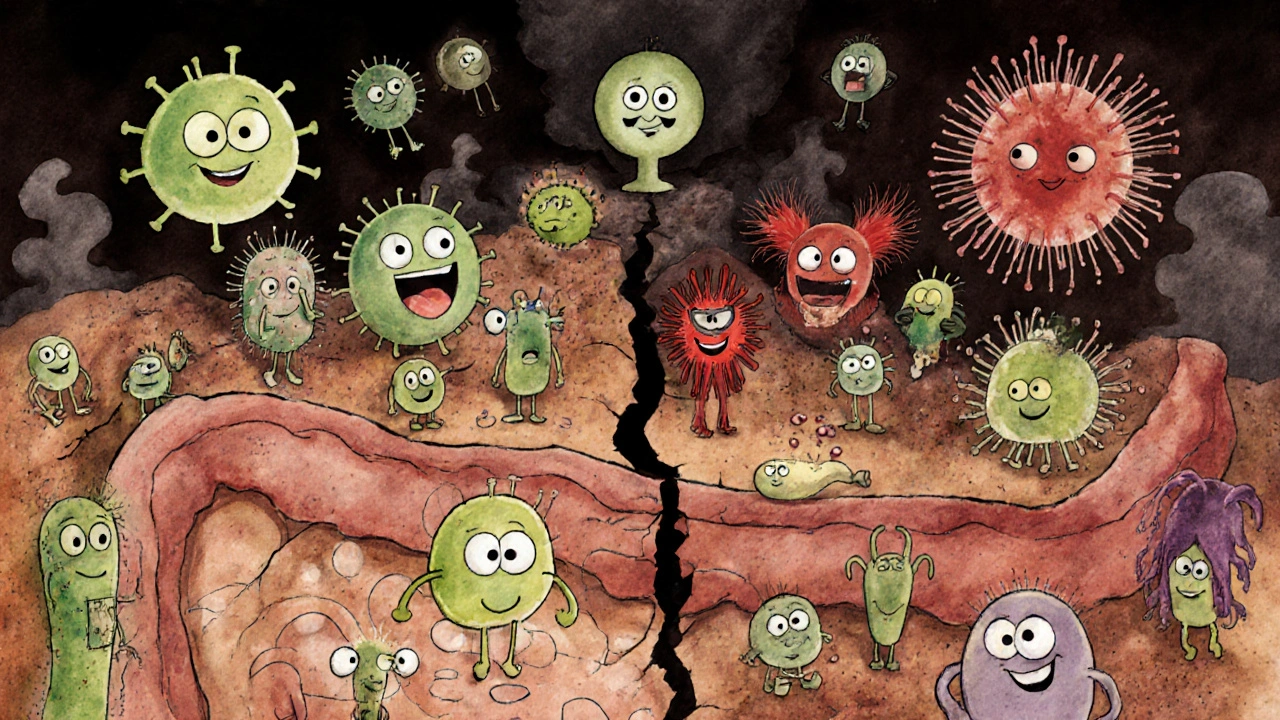Gut Microbiome
When talking about the gut microbiome, the vast community of bacteria, fungi, and viruses that inhabit our intestines. Also known as intestinal microbiota, it influences nutrition, immunity, and even mood. Understanding this ecosystem is the first step toward better health.
The balance of the gut microbiome depends heavily on what we eat. For example, dietary fiber, plant‑based carbs that resist digestion and feed beneficial microbes fuels the growth of good bacteria, while a lack of fiber can let harmful strains take over. Probiotics, live microorganisms that, when consumed in adequate amounts, can restore or enhance microbial balance act as a short‑term boost when diet alone isn’t enough. On the flip side, antibiotics, powerful drugs that kill bacteria indiscriminately often disrupt this delicate community, leading to issues like abdominal distension or altered digestion. The gut microbiome also immune system, the body’s defense network that learns to distinguish friend from foe by training immune cells in the gut, so a healthy microbiome can reduce inflammation and protect against infections.
Why the gut microbiome matters for everyday health
When the microbial balance shifts, the effects ripple through many body systems. A disrupted gut microbiome is linked to chronic bloating, as seen in abdominal distension cases where excess gas‑producing bacteria dominate. It also interacts with the vaginal microbiome, influencing susceptibility to yeast infections or bacterial vaginosis. Moreover, research shows a two‑way street between gut microbes and mental well‑being: stress can alter microbial composition, and an imbalanced microbiome can amplify anxiety or depression. These connections explain why articles on topics like abdominal discomfort, vaginal health, and even mood‑related disorders appear together under the gut microbiome tag.
Our curated collection below covers practical angles you’ll likely face. You’ll find step‑by‑step guides on tapering medications that affect gut flora, tips for caregivers helping loved ones with bloating, and evidence‑based looks at how probiotics may aid conditions such as Myasthenia Gravis or autoimmune disorders. There are also safety reviews for common drugs—like Levocetirizine or Actifen—and how they interact with gut bacteria, plus lifestyle advice on fiber‑rich foods and dietary patterns that keep your microbiome thriving.
Ready to dive deeper? Below you’ll discover a range of articles that blend science with real‑world tips, helping you understand, protect, and leverage your gut microbiome for better health.
Gut Microbiome and Autoimmunity: How Your Gut Bacteria Influence Autoimmune Diseases
- Laura Ledas
- Nov, 22 2025
New research reveals how gut bacteria trigger autoimmune diseases like lupus and rheumatoid arthritis. Discover the key microbes involved, how they affect immunity, and what treatments are on the horizon.
Learn MoreFix Poor Food Absorption on Low‑Carb Diets - Practical Guide
- Laura Ledas
- Oct, 12 2025
Learn why low‑carb diets can cause nutrient malabsorption and follow practical steps-enzymes, bile, fiber, electrolytes, probiotics-to boost digestion and health.
Learn More
